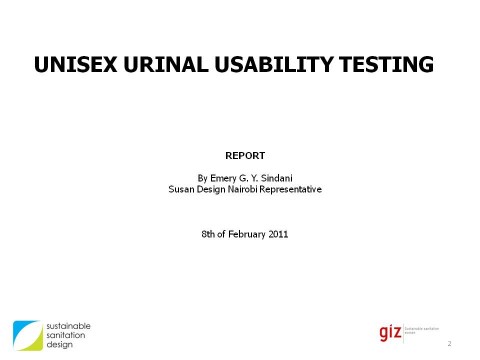Unisex urinal usability testing consultancy report for Gesellschaft für Internationale Zusammenarbeit (GIZ) GmbH, Eschborn, Germany Sindani, E. G. Y. (2011)
Bibliographic information
Sindani, E. G. Y. (2011). Unisex urinal usability testing consultancy report for Gesellschaft für Internationale Zusammenarbeit (GIZ) GmbH, Eschborn, Germany Sustainable Sanitation Design (SuSan Design)
Filter / Tags
UrineUrban (entire city)PresentationsEnglish
Downloads

Published in: 2011
Pages: 0
Publisher:
Sustainable Sanitation Design (SuSan Design)
Author(s):
Sindani, E. G. Y.
Uploaded by:
GIZ
Deutsche Gesellschaft für Internationale Zusammenarbeit (GIZ) GmbH
Location of library entry:
